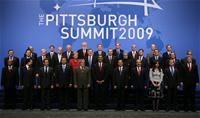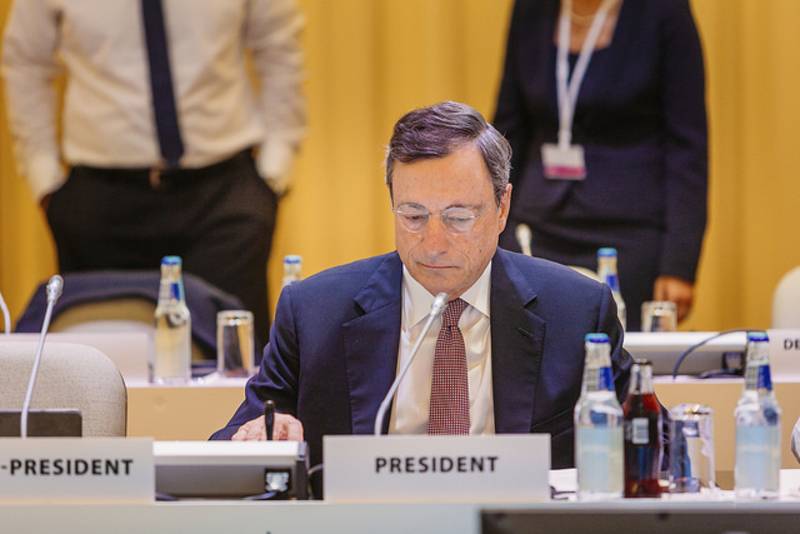G20 shifted priorities: budget deficits are the number one problem
Ralitsa Kovacheva, June 7, 2010
 The G20 finance ministers warned of the need for urgent measures to reduce the large budget deficits, which, according to them, is now a number one problem in global financial agenda. However, the controversial decision to impose a levy on banks will be left to national governments.
The G20 finance ministers warned of the need for urgent measures to reduce the large budget deficits, which, according to them, is now a number one problem in global financial agenda. However, the controversial decision to impose a levy on banks will be left to national governments.
In the final communique of the meeting of the Ministers and Governors of  central banks in Busan, South Korea, the emphasis was firmly placed on the large budget deficits as one of the gravest threats to economic recovery. The Financial Times quoted French Finance Minister Christine Lagarde, saying that “There’s a large majority for whom redressing the public finances is priority number one. For a minority, it’s supporting growth”.
central banks in Busan, South Korea, the emphasis was firmly placed on the large budget deficits as one of the gravest threats to economic recovery. The Financial Times quoted French Finance Minister Christine Lagarde, saying that “There’s a large majority for whom redressing the public finances is priority number one. For a minority, it’s supporting growth”.
“The recent events highlight the importance of sustainable public finances and the need for our countries to put in place credible, growth-friendly measures, to deliver fiscal sustainability, differentiated for and tailored to national circumstances. Those countries with serious fiscal challenges need to accelerate the pace of consolidation”, ministers note.
 There are concerns of some countries in the Group, expressed in a letter to the rest of the G20 members by the American Financial Secretary Timothy Geithner, that restrictive measures imposed in Europe to deal with large budget deficits threaten to undercut the momentum of the recovery. Therefore many ministers emphasized the need for structural reforms to promote private sector growth.
There are concerns of some countries in the Group, expressed in a letter to the rest of the G20 members by the American Financial Secretary Timothy Geithner, that restrictive measures imposed in Europe to deal with large budget deficits threaten to undercut the momentum of the recovery. Therefore many ministers emphasized the need for structural reforms to promote private sector growth.
The change of tone is obvious with respect to global bank levies. The official statement says, that the financial sector is expected to make "fair and substantial contribution" to financial stability, but according to “individual country's circumstances”:
“Financial sector should make a fair and substantial contribution toward paying for any burdens associated with government interventions, where they occur, to repair the banking system or fund resolution. To that end, recognizing that there is a range of policy approaches, we agreed to develop principles reflecting the need to protect taxpayers, reduce risks from the financial system, protect the flow of credit in good times and bad, taking into account individual country's circumstances and options, and helping promote level playing field.”
Despite the strong pressure from the U.S. and the European Union for global bank levies, more countries join the camp of the opponents of the idea. The Financial Times quoted Pranab Mukherjee, India’s finance minister, saying that “regulated mechanisms instead of taxing the banking system is better”.
According to the final communique, G20 countries are committed to continue  their efforts to agree on more stringent standards of capital and liquidity of banks. However, there are serious discrepancies on this issue. The latest idea was that the new rules of "Basel III", which are to come into force in 2012, were likely to be put in place between 2014 and 2016, a source close to the negotiations told the Financial Times.
their efforts to agree on more stringent standards of capital and liquidity of banks. However, there are serious discrepancies on this issue. The latest idea was that the new rules of "Basel III", which are to come into force in 2012, were likely to be put in place between 2014 and 2016, a source close to the negotiations told the Financial Times.
Shifting priorities in the agenda of the twenty most developed countries in the world shows that the biggest post crisis threat is poor state of public finances in many countries. The danger of excessive budget deficits, however, should not divert attention from the need for stricter regulation and supervision of the financial sector at global level. Because the lack of rules or breaking them is equally dangerous both for the banks and the countries.
 Mario Draghi | © ECB
Mario Draghi | © ECB Vladislav Goranov, Sven Sester | © Council of the EU
Vladislav Goranov, Sven Sester | © Council of the EU Tsakalotos, Djisselbloem, Gramegna | © Council of the EU
Tsakalotos, Djisselbloem, Gramegna | © Council of the EU